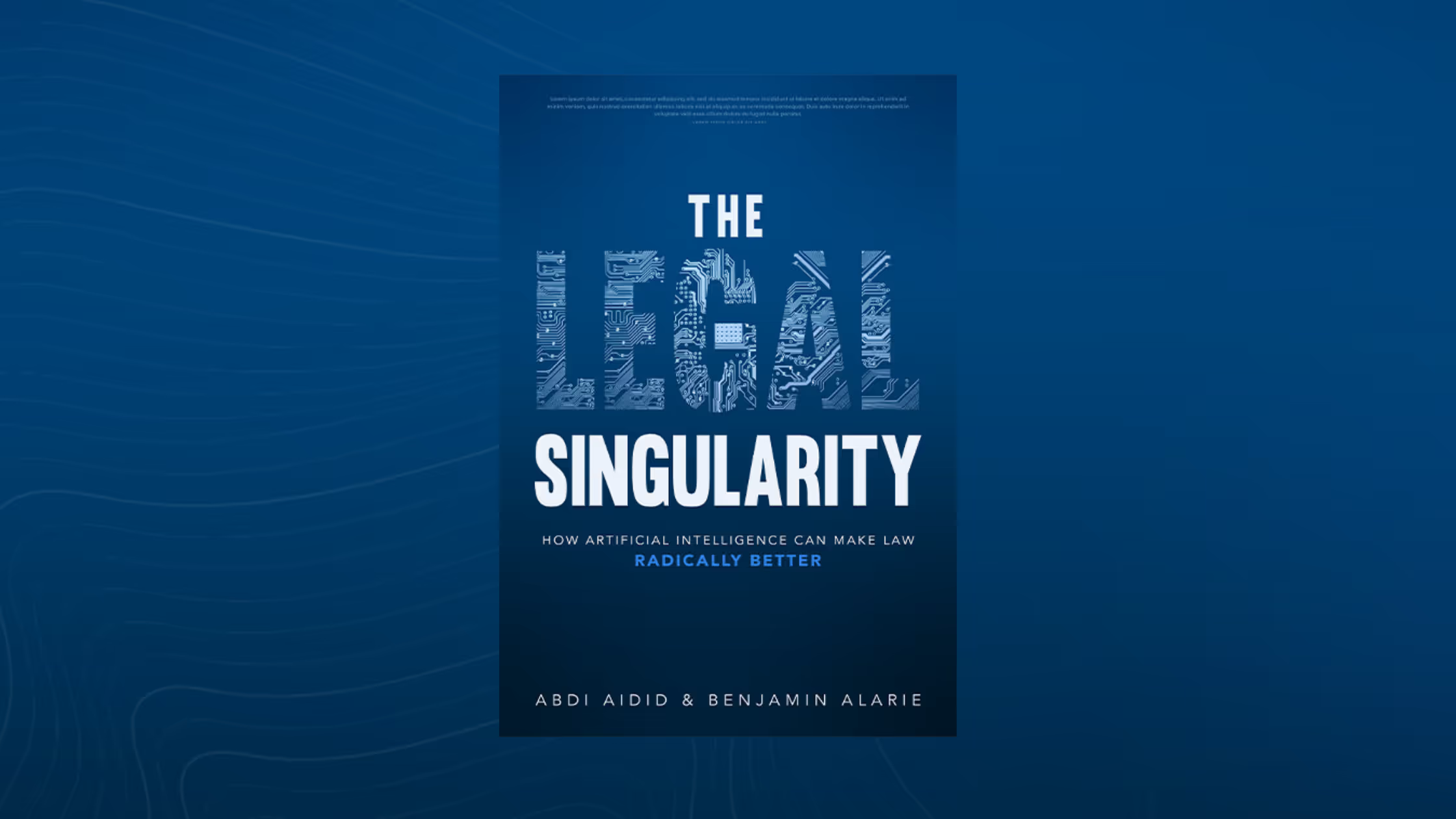
The Legal Singularity (Ch. 7): Combatting Inaccessible Legal Services through Universal Legal Literacy
At Blue J, we're delighted to offer this blog series providing an exclusive sneak preview into the highly anticipated book, The Legal Singularity. The book explores how society can harness artificial intelligence (AI) to make the law "radically better" and achieve a vision of the law as fully comprehensive and predictable. One illustration of our commitment to advancing the legal industry is the development of Ask Blue J, our upcoming AI-powered tax Q&A bot similar to ChatGPT. We're thrilled to be a part of this exciting future and look forward to continuing the conversation with you.
Exploration of Chapter 7: Towards Universal Legal Literacy
If you missed our summary of the preceding chapter, we encourage you to read it here.
In the seventh chapter of The Legal Singularity, the authors argue that the unaffordability of legal representation and the complexity of the law are the key issues contributing to the current inaccessibility of legal services.
With respect to unaffordability, despite an increase in the number of lawyers in both the United States and Canada, the high cost of legal services may cause some individuals to seek help only when encountering serious legal issues, while others may choose to represent themselves, even in high-risk legal disputes. The authors attribute this imbalance of supply and demand of lawyers to various distortions within the legal market, one significant distortion being the disproportionate buying power of large corporations who essentially outbid less well-resourced individuals in the legal marketplace.
The unaffordability problem is closely linked to the second issue contributing to the inaccessibility of legal services - the complexity of the law. Lawyers offer what economics literature calls a credence good, that is, lawyers sell their services as well-informed experts to less well-informed, non-expert consumers. This creates several disadvantages for consumers, including propagating dependence on legal professionals for a diagnosis and solution to their legal needs, and the inability to determine the necessity and quality of the service provided. This knowledge gap also means consumers have little ability to influence pricing or discourage the billing of unnecessary legal services.
The authors propose that the key to solving this access-to-justice issue is “universal legal literacy”, where every individual can easily comprehend their legal rights and obligations. This approach consists of three stages:
- Stage 1: Basic legal literacy - an individual's capacity to recognize information as containing legal characteristics.
- Stage 2: Legal comprehension - the ability to understand the law.
- Stage 3: Practical legal literacy - a sufficient understanding of legal information to be able to carry out practical applications, such as negotiating contract terms.
Empowering individuals with fundamental legal knowledge has the potential to rectify the power imbalance in the lawyer-client relationship and prevent lawyers from monopolizing the diagnosis and solution process of assessing legal issues. Rather than suggesting a mere simplification of the law, the authors imagine a future where the complexity of the law exists alongside a more reliable and enhanced consumer experience. A future, the authors believe, that can be achieved more easily via artificial intelligence and legal prediction than under the legal profession as we currently know it.
At Blue J, we recognize the challenges that individuals face in accessing legal services and are committed to addressing the access-to-justice problem. We aim to bring absolute clarity to the law by offering easily understandable legal research and analysis that is available on demand. Our AI-powered tools, including predictive technology and our upcoming AI-powered tax Q&A bot, Ask Blue J, seek to increase accessibility to the law by providing dependable and trustworthy legal information in which our users can be confident.
Stay tuned for our next blog post which will highlight the eighth chapter of The Legal Singularity that discusses the role of computational legal technologies in government.
The Legal Singularity (published with University of Toronto Press) is set for release July 2023.

Stay up to date












